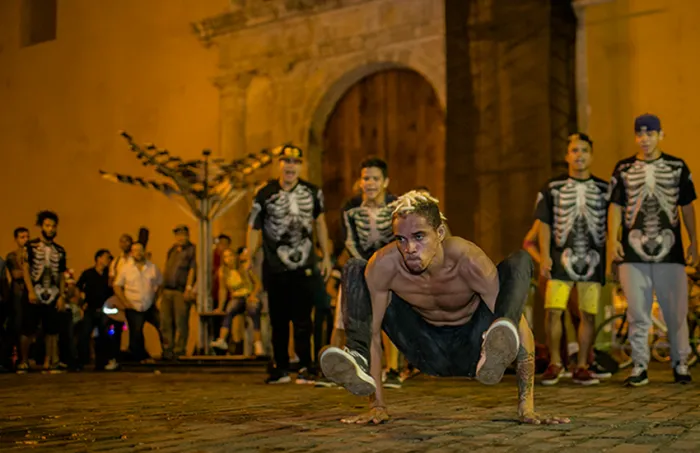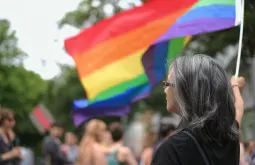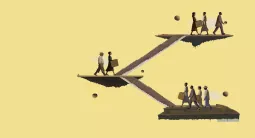Spleen of darkness

I’m in Cartagena where the cliches describing this ancient picaresque walled city fall as thick and fast as the glossy hair of a smouldering Latin beauty dipping in a tango clinch. Oh – I think that’s Argentina, but my ability to describe what is authentic isn’t fully honed, and perhaps, never will be. Given my background: a white African, forever trying to articulate The Pain of My People and then retreating in shameful confusion – dare I describe my minority suffering – may I speak for my more pigmented countrymen- I quite possibly don’t have the right. Poor Me, forever sidelined, not Black in a black country, decidedly Other in the rest of the world, I am the cultural undead, destined to roam the world looking for Home, a Zimbabwean Zombie. Zimbo in Limbo.
Here to find the African beginnings (in 2/4 timing) of This Vibrant City, I focus my mind on the evolution of Carnival. I’m interested in the movement trying to return the commercial fiesta to it’s Feast of Independence Roots and I trace the Magdalena river to Baranquilla, now the base of the annual festivities. It
African slaves working the barges on the river spawned progeny along its banks, and their mixed race heritage continues today, carrying the memory of Africa’s Beating Heart to Colombia in the drums and dances they brought with them. Barranquilla, the first free city in this country, has always attracted migrants and now, like Cartagena, it is also a destination for thousands of tourists, who come to marvel at the costumes and watch the dances which had their genesis the other side of the Atlantic.
I take a car and a driver – let’s call him Marlo. He’s wearing some sort of manmade fibre – which seems unwise in the heat, but once the initial relief of the air con in his Japanese hatchback turns arctic, I can see that no amount of polyester would make a difference and I long for cashmere.
“English not good” he informs me, I smile and we both turn with relief to our inner thoughts, having established that conversation is unnecessary.
I think he understands my body language though, as I gasp and clutch at my increase of speed as he reads his texts whilst checking me out slyly. I reflect how prosaic it would be to go like this, no closer to answering the question that has occupied me ever since I became a sentient being. I need a Big Revelation about My Place In The World before I’m ready to depart from it, and if I can’t have that, if I don’t work out where Home is, let me at least not be just another careless Colombian car crash stat. I may die on pursuit of Big Colombian Cultural Story I whatsapp My Intended who is in an airport bar somewhere.
I have taken to calling him My Intended as we share a fascination with Joseph Conrad’s Heart of Darkness. The book follows one man’s nightmarish journey into the interior of Africa. The narrator, Marlow, recounts his voyage along the Congo river as an agent for the Company, a Belgian ivory trading firm. Along the way, he witnesses brutality and hate between colonisers and the native people, who have been forced to work for the Company. The cruelty and squalor of imperial enterprise contrasts sharply with the impassive and majestic jungle that surrounds the white man’s settlements, making them appear to be tiny islands amidst a vast darkness. Marlow becomes entangled in a power struggle within the Company, repels attacks from the natives and god and a prisoner of the Africans.
When Marlow eventually finds Kurtz, he is mad and ill. Kurtz gives him his personal papers, including a pamphlet on civilising “the savages”, which ends with the scrawled message “Exterminate all the brutes”. Kurtz dies – his last words – which we have taken to quoting to each other to remind ourselves that all suffering is relative – are “the Horror, the Horror”, though when Marlow returns to Europe and visits Kurtz’ Intended, he lies and tells her that with his last breath, her lover whispered her name.
The river is to our left, but I close my eyes to The Horror, The Horror as the car chucks up gravel, slewing to the side of the highway. We have been stopped by the police, and a conversation, incomprehensible to me and quite possibly to Marlo too, as he keeps shrugging, ensues.
Leaving me in the now rapidly warming car, he follows the uniforms to their base on the other side of the melting asphalt. I amuse myself by smoking and taking pictures of the verge, decorated with the detritus of many bored and
My Intended is sending me pictures of the empty wine glasses on his departure lounge table. We exchange litter letters and I dramatise my situation. Being Held By Men With Guns And Uniforms By The Side Of The Road I tell him. He knows me too well to be concerned, knows I’m trying to find My Place, My Identity, that I’m trying this one on for size. Will I be Woman Kidnapped On Important Cultural Story? Not today, it seems, as Marlo returns to the car. Just Woman Very Late For Her Appointment At Carnival Museum.
A malnourished dog noses towards me on the side of the road, prompting a spurt of guilt as I compare him to my very well fed Springer Spaniel back in London.
There is a solemn welcoming committee waiting for me at the Carnival Museum, concerned at my late arrival. I’m immediately taken through to the bubblegum pink exhibition room, full of faux African masks, and shown a dull badly animated historical video. I ask for some audio and am led to the touch sensitive machine which plays different beats depending on where it is stimulated. I say touch sensitive, but actually it needs to be slapped quite hard to make a sound. I have my microphone out, but all I record is the sound is being recorded successfully are my exasperated sighs, we abandon the exercise. Instead, they present me with a CD and, enormously kindly, with a wonderful coffee table book about Carnival. I love that they do this, but groan inwardly – the publication must weigh at least 5 pounds, and my shoulders are already bruised from humping around all my radio equipment. I know I’ll never take it back to London, and even if I did, where would it live? With an over active Spaniel, a tiny house and the fact that every publisher in Britain sends me their book hoping I’ll interview The Next Literary Sensation, there is, literally, nowhere to put it.
My phone pings: Who was that bloke on twitter with his arm round you? Twitter – Twitter? My Intended doesn’t DO twitter. Or so I thought. What’s it to you, Boy in Barcelona, Surrounded By Hot Spanish girls? Who is Conchita, anyway? Bugger, I was planning to keep my powder dry on that one…his phone happened to be on the table before I left and I may have glanced at the message saying just how much she was looking forward to seeing him. But I’d planned to use that information for a good row in a bored moment latter encompassing everything from air con to traffic sirens – virtually unusable on radio. My interviewee is visibly spooked by the microphone. She says she isn’t confident in English and wants to rehearse her answers. We do this a couple of times, but when I press record she starts every answer, slightly peevishly, to my mind, with Well, AS I JUST TOLD YOU….
I’m finding it hard to concentrate, I can hear my phone going and angle myself so I can read the message discretely: Projecting?
I can’t really reply, without making it obvious. FU I hope I type with one finger, whilst maintaining eye contact with my subject. She is incredibly generous and takes my questions about the African roots of Carnival patiently, explaining how important it is to try and be a part of it. Carnival is now a spectator sport, but the true meaning of the event can only be revealed to those who participate, she tells me. No longer an inclusive celebration, there is an audience and a cast – and a big divide in between. You should DO, not watch, she says. Makes sense – it should be the maxim for most of life. Join of questioning their place in it. They got on with it, keeping alive the aspects of their culture that mattered to them. But Cartagenians are now trying to make the Carnival more meaningful – they want to find their own way to celebrate and to incorporate it with the Feast of Independence. In a few years it will be the bicentennial of the Second Independence, achieved by the man known as the Great Liberator, Jose Padilla . He challenged the racist hierarchy of the city and fought for equality. Leading a three day coup in 1828 against Simon Bolivar’s authoritarian constitution, the Mulatto General was executed for his efforts.
Under the guidance of leading academic and historian Alberto Abello, the group want to create their own celebration for the city, forming a new carnival tourist attraction “between the sea and the wall” which they hope would generate a more inclusive and open society in homage to Padillia’s fight. They are pushing local government, all the heritage and culture bodies, as well as big business, to get aboard.
I arranged to meet Alberto to find out more. The meeting is hard won, he’s busy and about to fly out to France. We whatsapp, rather pointlessly, he in Spanish, me in English until the ever efficient translator sets it up. My idea is that I’ll swing by his place, have a ten minute chat and just check the facts.
Palanque, the community founded by escaped slaves two hundred years ago, and now a sort of very hot Authentic Afro- Caribbean theme park. The people live in a way that, apart from the motorbikes buzzing the dirt roads, is virtually unchanged. After it was declared a UNESCO Place of Special Cultural Heritage or some such, a shiny new Culture centre was built, but government attention has moved on, and the population of the town now hosts tourists who come to exclaim at their poverty and inhale their history. All that inhaling, of history, of Lucky Strikes, of dust and diesel fumes, can really deplete a woman, and that is before taking into account the searing heat. Upshot was, by the time we were on our way back to ritzy Cartagena, where the lucky cousins of the Palenqueros make the money to send back to their rural relatives, I’m exhausted and ask the translator if perhaps we could rearrange for another day. The message comes back – Alberto has prepared a long power point presentation AND made a shrimp salad. He’s expecting me for my own private lecture. It is tactfully explained to me that although the translator speaks perfect English, I just need to say what I mean, this is no place for subtlety. Eventually, tying myself in knots of social embarrassment and yet more guilt, I do. I tell her I just can’t take a lecture this evening, shrimp salad or not. It’s rude, I’m mortified, but know that I would have dozed Alberto’s is a nobel idea (the Independence Feast , not the shrimp salad) but I’m not sure how I feel about it – increasingly I see Cartagena as a city of grinding poverty overlaid by a thin patina of tourist glitz. An industry built on the backs of the workers – many of African heritage – who enjoy virtually nothing of the sybaritic pleasures the town has to offer to a well heeled visitor. They come to immerse themselves in its colonial splendour and the ongoing misery of the formerly colonised is seemingly never considered. It is one of the reasons I can never go back to what was once my Home. The disparity in Harare, as in Cartagena, between rich and poor, between pale and dark is just too great. My White Guilt would cripple me in Zimbabwe, and in Cartagena, as I begin to realise how much the leisure industry masks a greatly unequal society, I feel increasingly uncomfortable. Not that I actually do anything about it. I’ve never been one to let the misery of others interfere with a good mojito by an hotel pool.
My phone pings. My Intended has landed, half a world away in London, our Home – that problematic word – and is heading back to the dog, the child, the garden and all the usual accoutrements of the averagely well off in a developed nation.
Cultural Adventure? What is GU? If you’d bothered to read the rest of the message from Conchita , you’ll have seen she’s the person I was doing business with in Spain and was telling me how to access the venue….No amount of temptation, blah blah – fill in the blanks -you know it’s ONLY you.
Back at the Carnival Museum it’s time to leave. Marlo is waiting, damp in his polyester. “Home?” he says, clearly proud of his mastery of English. He can have no idea that I haven’t mastered the meaning of the word. But I think I am gaining some kind of understanding. I ponder those slaves transported here hundreds of years ago, reflecting on the present day Cartagenians trying to reclaim their heritage and those who continue to toil in a city where they don’t appear to be particularly valued. As I factor in my own perpetual search for belonging – through Near Death Experiences and other headlines – I decide that perhaps there is a simpler way of looking at it.
My whatsapp pings. Anyway, hope Hostage Experience now over and you are not Kidnapped Woman in Search of Cultural Story. Here’s a picture of your dog who has been digging up the garden I read. I reply No Ablo Spaniel.
a half hour flight to sort out The Horror? I reply waspishly. He sends me kisses back.
Home is a person. Or maybe a dog. You belong where you can get angry, vent your spleen and still be accepted. You belong where you are loved. And when everything familiar is taken away from you, wherever you journey, all that remains is people. In the end, where you are from is not as important as where you are now, and how you go forward. I may not share a blood line with my countrymen, but the ability to reinvent, to start again and create our own caring communities is universal. Be Kind. Take the book. Eat the shrimp salad. Learn how to say Thank You in Spanish…Obrigado?
I whisper the name of My Intended. And soon, I’ll go Home to him.






